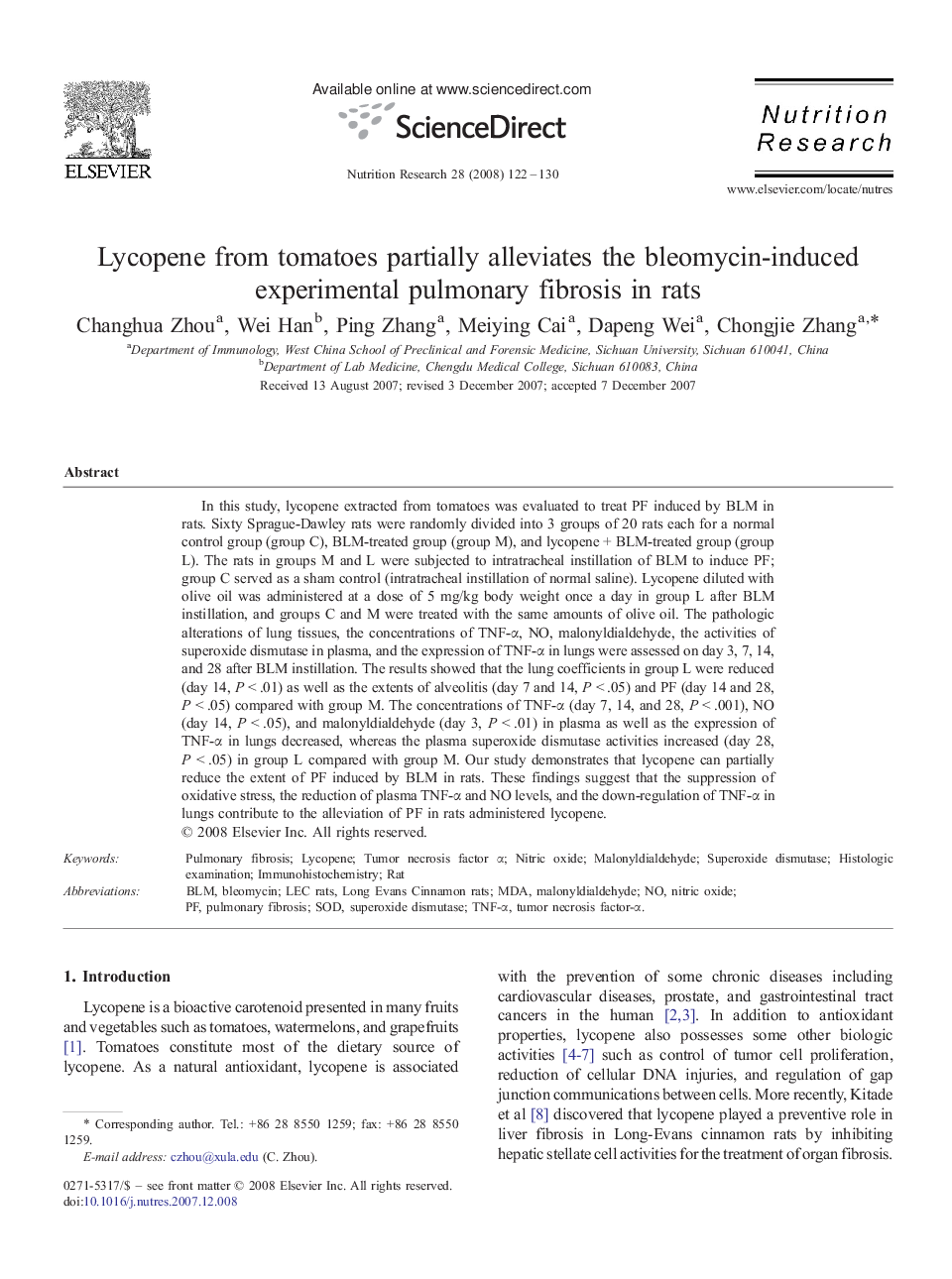| Article ID | Journal | Published Year | Pages | File Type |
|---|---|---|---|---|
| 2809942 | Nutrition Research | 2008 | 9 Pages |
In this study, lycopene extracted from tomatoes was evaluated to treat PF induced by BLM in rats. Sixty Sprague-Dawley rats were randomly divided into 3 groups of 20 rats each for a normal control group (group C), BLM-treated group (group M), and lycopene + BLM-treated group (group L). The rats in groups M and L were subjected to intratracheal instillation of BLM to induce PF; group C served as a sham control (intratracheal instillation of normal saline). Lycopene diluted with olive oil was administered at a dose of 5 mg/kg body weight once a day in group L after BLM instillation, and groups C and M were treated with the same amounts of olive oil. The pathologic alterations of lung tissues, the concentrations of TNF-α, NO, malonyldialdehyde, the activities of superoxide dismutase in plasma, and the expression of TNF-α in lungs were assessed on day 3, 7, 14, and 28 after BLM instillation. The results showed that the lung coefficients in group L were reduced (day 14, P < .01) as well as the extents of alveolitis (day 7 and 14, P < .05) and PF (day 14 and 28, P < .05) compared with group M. The concentrations of TNF-α (day 7, 14, and 28, P < .001), NO (day 14, P < .05), and malonyldialdehyde (day 3, P < .01) in plasma as well as the expression of TNF-α in lungs decreased, whereas the plasma superoxide dismutase activities increased (day 28, P < .05) in group L compared with group M. Our study demonstrates that lycopene can partially reduce the extent of PF induced by BLM in rats. These findings suggest that the suppression of oxidative stress, the reduction of plasma TNF-α and NO levels, and the down-regulation of TNF-α in lungs contribute to the alleviation of PF in rats administered lycopene.
